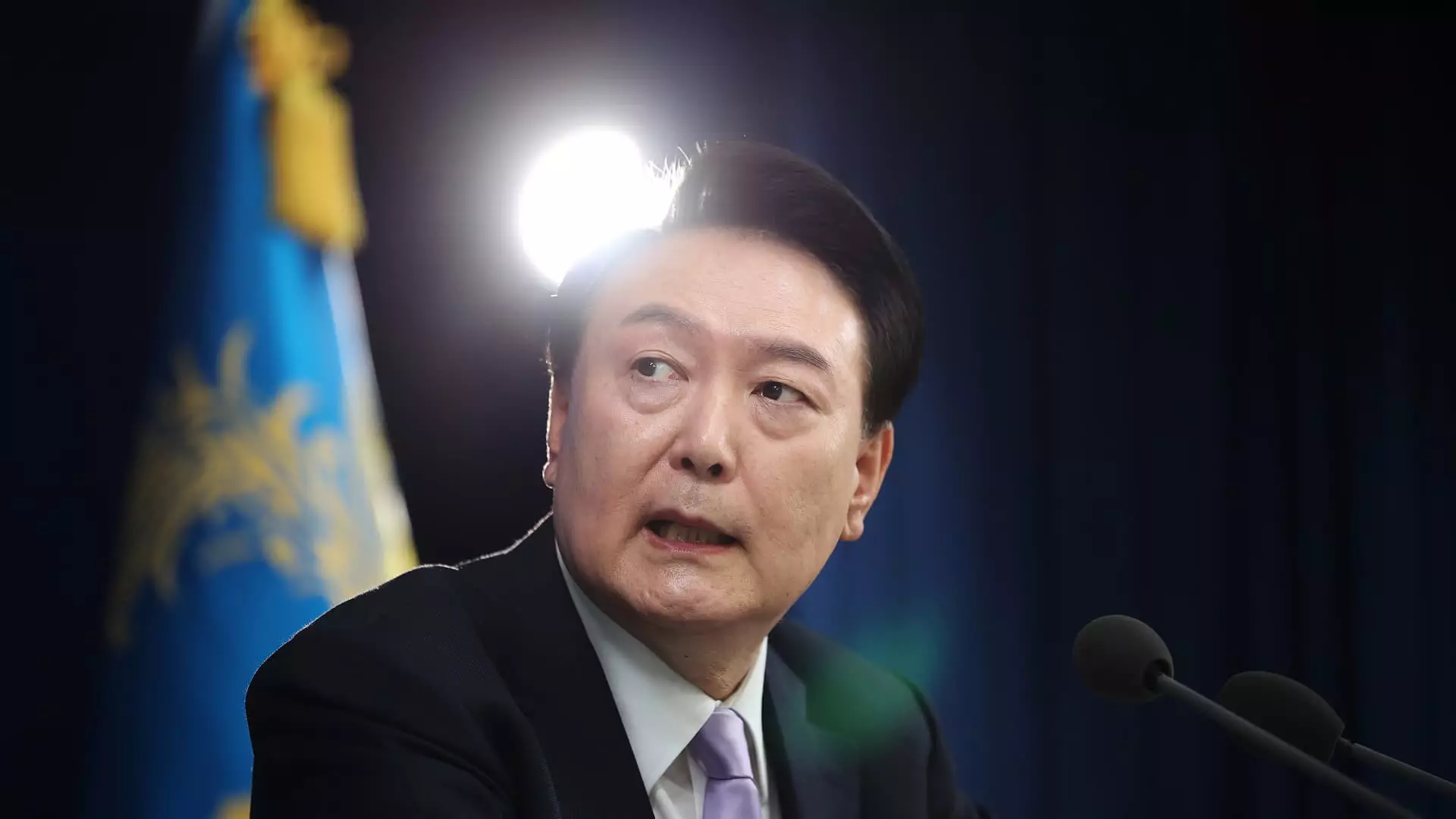In a politically charged atmosphere, South Korean President Yoon Suk Yeol avoided impeachment this past Saturday. The motion, spearheaded by the opposition ensemble led by the Democratic Party, arose from his recent controversial attempt to impose martial law. The motion required a two-thirds majority from the 300-member National Assembly to pass; however, the ruling People Power Party’s conspicuous absence at the vote rendered the quorum unattainable. As the political narrative unfolds, it raises questions about the fragility of Yoon’s presidency and the state of democracy in South Korea.
Yoon, who achieved the presidency in a tightly contested election in 2022, currently faces a significant approval rating crisis, standing at a mere 19%. His foray into martial law, the first since the military coup of 1979, startled many citizens and intensified widespread protests. Citing a need to “protect the constitutional order,” his rationale for martial law was predicated on confronting perceived threats from pro-North Korea entities. This decision led to an unsettling tense environment, not just politically but also economically, prompting the government to assure markets that contingency funds amounting to 50 trillion won ($35.22 billion) would be available to ensure financial stability.
Despite the temporary setback in their impeachment efforts, opposition leaders are resolute about revisiting the motion in the coming days. They perceive this as essential not only for challenging Yoon’s controversial stewardship but as a testimony to the resilience of democratic values in South Korea. If the impeachment motion were to successfully pass, a presidential election could be triggered within 60 days, potentially reshaping the leadership landscape significantly. Observers of South Korean politics recognize this as a vital moment in determining the opposition’s robustness and strategic acumen.
The political unrest reverberates beyond government corridors, encroaching upon economic stability. The South Korean Financial Services Commission stands vigilant, prepared to intervene in the stock and bond markets should volatility escalate further. Adarsh Sinha, co-head of Asia rates and FX strategy at BofA Securities, highlighted that the situation could induce substantial fluctuations in the Korean won. Notably, these movements may stem not only from political instability but also from fundamental economic conditions, including potential interest rate cuts by the Bank of Korea.
South Korea’s political history is rife with instances of high-stakes confrontations between government authority and civil liberties. The impeachment attempts against former presidents Roh Moo-hyun in 2004 and Park Geun-hye in 2016 serve as a reminder of the nation’s tumultuous past. Yoon’s administration is being scrutinized against this historical backdrop, and many citizens have taken to the streets to express their discontent. The palpable angst among the populace has manifested in protests, emphasizing their commitment to democratic principles over authoritarian inclinations.
In a public address following the events, President Yoon sought to reassure citizens of his awareness of the gravity of the situation. His promise of no further attempts to invoke martial law signals a potential course correction in an administration reeling from backlash. However, the underlying concern remains: can the government maintain stability in light of pressure from both domestic and international observers?
As South Korea navigates these politically turbulent waters, the future of President Yoon’s administration hangs in the balance. The state of his leadership will ultimately determine the trajectory of South Korean democracy in the months and years to come, spotlighting the ongoing tension between authority, opposition, and the powerful will of the people.

Leave a Reply